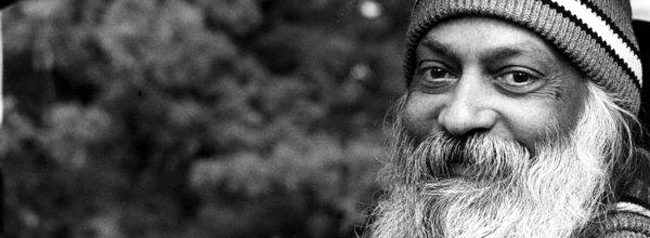The release of Indian national Surjeet Singh by Pakistan is considered as a forward move in normalising the extinct relation between the two neighbors. The development has been welcomed across the country but the Sarabjit– Surjeet fiasco, prior to latter’s release – evoked strong reactions and sentiments from the people.
Pakistan government did clarify the confusion a few hours later but by that time the media, in both the countries, had ran the much awaited and coveted news without verifying the fact. Needless to say the damage was done.
Farhatullah Babar, President Asif Ali Zardari’s media adviser, in his interview to media persons had clearly said that it was Surjeet Singh as the Indian prisoner Pakistan planned to release. But it was the media which created complete chaos.
In the arena of sabse tez, sabse aage, etc, etc, the electronic media did every possible move, what it could do, in keeping its audience ‘ahead’ and ‘informed’. In India, most TV news channels staged fancy talk shows, animated programmes and panel discussions on Surjeet-Sarabjit drama to instill an emotional and sensational feeling among its audience.
Print media in both the countries seemed equally prompt in updating their website with the chaotic news as their print edition would take substantial time in reaching the readers. The immature reporting by some esteemed daily newspaper left the readers stirred and wondered.
One of the important reasons behind this mess-up could be the linguistic barrier of the journalists. Urdu is an official language in Pakistan and the release order was reported to be in the same language. There is minor difference in the names of two captive, Sarabjit-Surjeet, if written in Urdu. There are limited number of journalists in India who are equally good at Urdu language and can interpret the same into other languages. The always-in-a-hurry journo misinterpreted it and ran with the news at first hand.
However, such mistake was not expected from Pakistani journalists who turned equally insane like their Indian bro in reporting the development.
On June 27, in India, , The Hindu, The Indian Express, Hindustan Times; and in Pakistan, The Down, The Nation, Statesman, and Pakistan Observer’s headline carried a clarification by Pakistan government that it was Surjeet and not Sarabjit.
The Surjeet-Sarabjit chaos did not end up with this mess-up. The two-day consecutive reporting in India’s largest circulated newspaper The Times of India did the rest damage by painting the whole development with wrong brush. First the paper reported it as Pakistan’s “U-turn” and then blamed ‘Jihadi groups’ for the “U-turn”.
On June 27, the paper adorned it with a headline, “Midnight Drama: Pakistan does a U-turn on Sarabjit”. The following day the newspaper went a step ahead and gave a bold headline, “Pak may have done Sarabjit U-turn under Jihadi pressure”.
The headline was directly derived from Sarabjit’s bereaved family who blamed Islamic fundamentalists Jamaat-e-Islami, Pakistan and the Jamaat-ud Dawa for mounting pressure on the Pakistan government to take a U-tern.
Whosoever has followed the development and the official release order developed an apparent understanding that it was actually Surjeet Singh; hence there was no U-turn. When it was not a U-turn what validates the paper to put the blame on Jihadi groups.
At a time when the whole country seemed jubilant at Surjeet’s release and his homecoming and urging the neighbouring country to consider Sarabjit’s release; the major daily was shedding tears and putting the blame on ‘Jihadi groups’ – further deteriorating the situation for worst.
Over the years the news reporting cross the country has significantly been jingoistic. Patriotic fervor have overpowered journalistic ethics which reflect in the news reporting. And India-Pakistan are no exception to this.
The two examples in hand can significantly elaborate the points. Surjeet Singh, on his arrival in India, addressed media persons and admitted that he was an Indian spy sent to Pakistan by India’s Research and Analysis Wing (RAW).
As expected the news had limited coverage in Indian print and electronic media but was extensively covered and published by Pakistani media.
Another example: The arrest of Abu Jindal. The Indian media is filled with numerous reports which joins the dots of Mumbai terror attacks to cross border. Here Pakistani media has observed restraint over the reporting and even defied any association with the captive.
For the last few years the links of every terror activity in India connects to foreign soil. India blames Pakistan for supporting terror activities and Pakistan as usual states it as a matter of mutual concern.
The disclosure of Abu Jindal’s association with ISI and Surjeet’s with RAW have strengthened their claim. These might be the reason why some sections in media in both the countries are quick in declaring and accusing the other for sponsoring terror activities.
Pakistan has also been cynical about the treatment meted out to their national captive in Indian Jails. The Nation (Pakistan), in an editorial on June 27, alleges that Pakistani prisoners in Indian jails have no consideration shown to them, while Indians imprisoned in Pakistani jails, even if convicted of attempting to harm the Pakistani state have been treated well.
Media has power and it can significantly contribute in narrowing the gaps between the neighbours. Immature and insane reporting will only enlarge difference and spread hatred among the people. Being jingoistic is natural but let such feeling not overcome the ethics of journalism.
-Shafaque Alam


